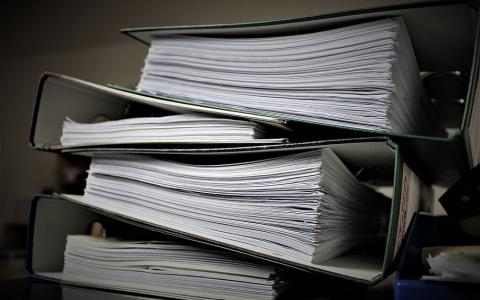
(Orion) Your firm will be audited. It’s not a question of if, it’s only a question of when.
It’s no cause for alarm, as it happens to everyone at some point. The SEC performs over 2,000 audits per year.
When you finally get that notice—from either the SEC or a state regulating authority—there’s no need to panic. But you will want to do a few things to prepare your firm for an audit before you get that letter in the mail.
EXTERNAL PREP
After you receive notice that an audit is imminent, promptly appoint your CCO as the point person for all communications between your firm and the regulating authority going forward.
The first thing on your CCO’s to-do list is to respond to the notice and confirm or reschedule the date and time for auditors to visit your office. Before confirming the date, make sure all key personnel will be in the office and available that day.
The last thing you want to do is plan your audit on a day when anyone in the C-suite is on vacation. Once the date is confirmed, block it off on everyone’s calendar so they will be in the office and available.
INTERNAL PREP
The majority of the prep work for an audit will be internal.
1. PREP YOUR FILES
The auditors are coming to your office to make sure everything is in order, so it’s important that you know how to find any files they ask for. While there is no way to know everything they could possibly need, you’ll need to know how to find it.
Typically, the files auditors will need to see include (but are not limited to):
- Financial statements of any kind
- Advertising materials
- Client records
- Policies and procedures
- Ledgers & journals
If you don’t already have an audit prep system of some sort in place, now would be a great time to look into getting one.
2. PREP YOUR TEAM
Let your team know when the auditors will be in your office and instruct them on how to interact with them.
Even employees who will not be interviewed directly may find themselves interacting with auditors when the time comes. Make sure everyone knows who the CCO is and tell your team to direct all questions to them.
As for everyone who will be directly involved in the audit, schedule a time to huddle up and go over any important items they should be aware of in advance. This is the time to bring up any potential areas of concern and also to make sure everyone is on the same page.
The primary point to make with your team is to be honest above all else. Answer any questions to the best of their ability, and if they don’t know the answer, tell the auditors as much and direct them to the CCO.
If the auditors sense any differences in answers between team members or believe anyone is being dishonest, that will only serve to raise a red flag and bring even more attention, including additional audits.
3. PREPARE A PLACE FOR THE AUDITORS TO WORK
Reserve a private area with desks or tables and chairs for the auditors to carry out their business. That may mean setting aside a conference room or your designated client meeting space. Whatever it takes, make sure they have space to work.
4. PREPARE TO BE FOUND DEFICIENT
No matter how much prep work you do and how thoroughly you vet your team, chances are that the auditors will find at least one deficiency.
The vast majority of firms receive a notice of deficiency after an audit, so you’re not alone. The SEC will give you a deadline to respond. If you can’t make the deadline, just let them know. Most of the time, they’re willing to work with you on an extension within reason.
And, a deficiency doesn’t mean a business-crippling event. It can merely be an opportunity for you to adjust a process and shape it better in the future.
If you take these steps to get ready, though, you should find your firm is in good shape the next time you have to prepare for an SEC audit.



